Gavin Francis in The Guardian:
 Part-way through this memoir of hospice medicine and living with loss, Rachel Clarke lists a few troubling ideas she prefers to avoid thinking about: global warming, far-right populism, email overload, menopause, declining numbers of bees and, of course, mortality. It’s become a truism that western societies have difficulties accepting death, but Clarke, whose daily work is to ease the suffering of the dying, has a different view. She sees sense in avoiding the contemplation of death, and often applauds her patients for it – right up until they no longer have any choice.
Part-way through this memoir of hospice medicine and living with loss, Rachel Clarke lists a few troubling ideas she prefers to avoid thinking about: global warming, far-right populism, email overload, menopause, declining numbers of bees and, of course, mortality. It’s become a truism that western societies have difficulties accepting death, but Clarke, whose daily work is to ease the suffering of the dying, has a different view. She sees sense in avoiding the contemplation of death, and often applauds her patients for it – right up until they no longer have any choice.
It’s a kindness to see death as belonging on the same list as brown envelopes from the government: “Maybe, more prosaically, dying is on a par with tax returns and pensions. We know we should address them all proactively, it is just that the admin involved is, frankly, tiresome.” Only 4% of the population have had the foresight to prepare an “advanced directive” detailing how they’d like to be treated or left in peace should they become critically ill; Clarke would like to see that number increase. Her book has an appendix of websites and organisations that can help. But Dear Life is not a manual for dying, or an orthodox medical memoir – it’s a very personal autobiography. It charts one woman’s trajectory from a happy childhood in rural Wiltshire as the daughter of a local GP, through university, then into a successful career making TV documentaries in London. There’s a Damascus moment in her late 20s when she decides to retrain as a doctor, first in acute and emergency medicine, then finally as a consultant in palliative care.
More here.

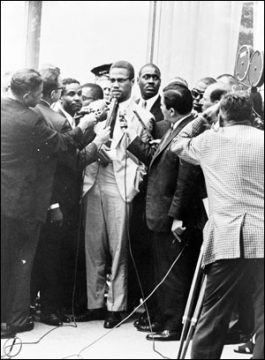 Whenever the Negroes keep the Democrats in power they’re keeping the Dixiecrats in power. This is true! A vote for a Democrat is nothing but a vote for a Dixiecrat. I know you don’t like me saying that. I’m not the kind of person who come here to say what you like. I’m going to tell you the truth whether you like it or not. [applause] Up here in the North you have the same thing. The Democratic Party don’t – they don’t do it that way. They got a thing they call gerrymandering. They maneuver you out of power. Even though you can vote they fix it so you’re voting for nobody. They got you going and coming. In the South they’re outright political wolves, in the North they’re political foxes. A fox and a wolf are both canine, both belong to the dog family. [laughter, applause] Now, you take your choice. You going to choose a northern dog or a southern dog? Because either dog you choose, I guarantee you, you’ll still be in the doghouse.
Whenever the Negroes keep the Democrats in power they’re keeping the Dixiecrats in power. This is true! A vote for a Democrat is nothing but a vote for a Dixiecrat. I know you don’t like me saying that. I’m not the kind of person who come here to say what you like. I’m going to tell you the truth whether you like it or not. [applause] Up here in the North you have the same thing. The Democratic Party don’t – they don’t do it that way. They got a thing they call gerrymandering. They maneuver you out of power. Even though you can vote they fix it so you’re voting for nobody. They got you going and coming. In the South they’re outright political wolves, in the North they’re political foxes. A fox and a wolf are both canine, both belong to the dog family. [laughter, applause] Now, you take your choice. You going to choose a northern dog or a southern dog? Because either dog you choose, I guarantee you, you’ll still be in the doghouse.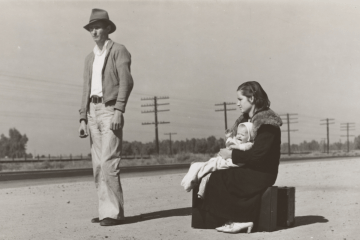 In 1831, Alexis de Tocqueville took a 10-month trip to the United States to study the American penal system. In the resulting book—
In 1831, Alexis de Tocqueville took a 10-month trip to the United States to study the American penal system. In the resulting book—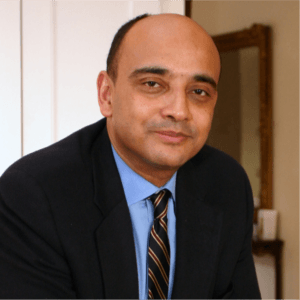 The Greek statesman Demosthenes is credited with saying “I am a citizen of the world,” and the idea that we should take a cosmopolitan view of our common humanity is a compelling one. Not everyone agrees, however; in the words of former British Prime Minister Theresa May, “If you are a citizen of the world, you are a citizen of nowhere.” On the other side of the political spectrum, groups who share a feature of identity — race, ethnicity, gender, sexuality, and others — find it useful to band together to make political progress. Kwame Anthony Appiah is a leading philosopher and cultural theorist who has thought carefully about the tricky issues of cosmopolitanism and identity. We talk about how identities form, why they matter, and how to negotiate the difficult balance between being human and being your particular self.
The Greek statesman Demosthenes is credited with saying “I am a citizen of the world,” and the idea that we should take a cosmopolitan view of our common humanity is a compelling one. Not everyone agrees, however; in the words of former British Prime Minister Theresa May, “If you are a citizen of the world, you are a citizen of nowhere.” On the other side of the political spectrum, groups who share a feature of identity — race, ethnicity, gender, sexuality, and others — find it useful to band together to make political progress. Kwame Anthony Appiah is a leading philosopher and cultural theorist who has thought carefully about the tricky issues of cosmopolitanism and identity. We talk about how identities form, why they matter, and how to negotiate the difficult balance between being human and being your particular self.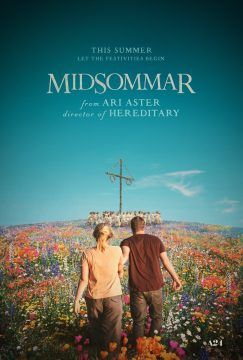 You should sit low, not on a chair or a stool or a couch. A small crate will do the job. Or anything that is lower than 9.5 inches from the ground. You can’t shave or cut your hair. You can’t have sex. You shouldn’t take a shower, though you may do some light swabbing of your especially funky bits, as well as dousing your feet and hands in cold water now and again. You can’t greet people in the normal way. You definitely cannot work. No freshly laundered clothes. The list of things you cannot do is long.
You should sit low, not on a chair or a stool or a couch. A small crate will do the job. Or anything that is lower than 9.5 inches from the ground. You can’t shave or cut your hair. You can’t have sex. You shouldn’t take a shower, though you may do some light swabbing of your especially funky bits, as well as dousing your feet and hands in cold water now and again. You can’t greet people in the normal way. You definitely cannot work. No freshly laundered clothes. The list of things you cannot do is long. GEORGE STEINER IS A CHARMING
GEORGE STEINER IS A CHARMING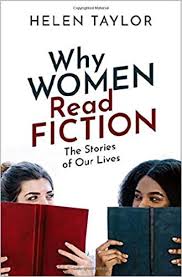 Men not reading women’s writing is widespread, and they begin not reading early. In the university applications that cross my desk, it’s common for male candidates not to mention a single female author, despite otherwise showing evidence of wide and ambitious reading. The opposite is rare.
Men not reading women’s writing is widespread, and they begin not reading early. In the university applications that cross my desk, it’s common for male candidates not to mention a single female author, despite otherwise showing evidence of wide and ambitious reading. The opposite is rare.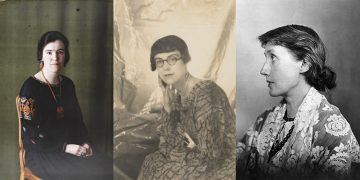 “I would venture to guess that Anon, who wrote so many poems without signing them, was often a woman,” wrote Virginia Woolf in A Room of One’s Own (1929). In that essay, commenting on the fact that women’s lives are “all but absent from history,” she argues that this is not only a consequence of the ways women have been deprived of the material conditions under which their talents can prosper but also reveals the sort of events and lives historians have traditionally considered worth remembering—primarily, the public activities of “great men.” Perusing the index of G. M. Trevelyan’s History of England, Woolf looks up “position of women” and is dismayed to find only a smattering of references, mostly to customs of arranged marriage, wife-beating, and the fictional heroines of Shakespeare. Flicking through chapters on wars and kings, she wonders why so little room is left for women’s activities in the events that “constitute this historian’s view of the past.” It was clear to Woolf that new histories were needed, which would examine the reality of women’s lives, their relationships and activities, and the forces that thwarted their ambitions.
“I would venture to guess that Anon, who wrote so many poems without signing them, was often a woman,” wrote Virginia Woolf in A Room of One’s Own (1929). In that essay, commenting on the fact that women’s lives are “all but absent from history,” she argues that this is not only a consequence of the ways women have been deprived of the material conditions under which their talents can prosper but also reveals the sort of events and lives historians have traditionally considered worth remembering—primarily, the public activities of “great men.” Perusing the index of G. M. Trevelyan’s History of England, Woolf looks up “position of women” and is dismayed to find only a smattering of references, mostly to customs of arranged marriage, wife-beating, and the fictional heroines of Shakespeare. Flicking through chapters on wars and kings, she wonders why so little room is left for women’s activities in the events that “constitute this historian’s view of the past.” It was clear to Woolf that new histories were needed, which would examine the reality of women’s lives, their relationships and activities, and the forces that thwarted their ambitions. Sometime around 2 billion years ago, a bacterium slipped inside a larger cell, started producing energy there, and became the indispensable powerhouse we know today as the mitochondrion, so the working theory goes. But that old story now has a new twist. Scientists have detected the organelles outside of cells, apparently functioning perfectly well while drifting around the blood of healthy people, according to findings published recently (January 19) in
Sometime around 2 billion years ago, a bacterium slipped inside a larger cell, started producing energy there, and became the indispensable powerhouse we know today as the mitochondrion, so the working theory goes. But that old story now has a new twist. Scientists have detected the organelles outside of cells, apparently functioning perfectly well while drifting around the blood of healthy people, according to findings published recently (January 19) in  When Homer Plessy boarded the East Louisiana Railway’s No. 8 train in New Orleans on June 7, 1892, he knew his journey to Covington, La., would be brief. He also knew it could have historic implications. Plessy was a racially mixed shoemaker who had agreed to take part in an act of civil disobedience orchestrated by a New Orleans civil rights organization. On that hot, sticky afternoon he walked into the Press Street Depot, purchased a first-class ticket and took a seat in the whites-only car. The civil rights group had chosen Plessy because he could pass for a white man. It was asserted later in a legal brief that he was seven-eighths white. But a conductor, who was also part of the scheme, stopped him and asked if he was “colored.” Plessy responded that he was. “Then you will have to retire to the colored car,” the conductor ordered.
When Homer Plessy boarded the East Louisiana Railway’s No. 8 train in New Orleans on June 7, 1892, he knew his journey to Covington, La., would be brief. He also knew it could have historic implications. Plessy was a racially mixed shoemaker who had agreed to take part in an act of civil disobedience orchestrated by a New Orleans civil rights organization. On that hot, sticky afternoon he walked into the Press Street Depot, purchased a first-class ticket and took a seat in the whites-only car. The civil rights group had chosen Plessy because he could pass for a white man. It was asserted later in a legal brief that he was seven-eighths white. But a conductor, who was also part of the scheme, stopped him and asked if he was “colored.” Plessy responded that he was. “Then you will have to retire to the colored car,” the conductor ordered.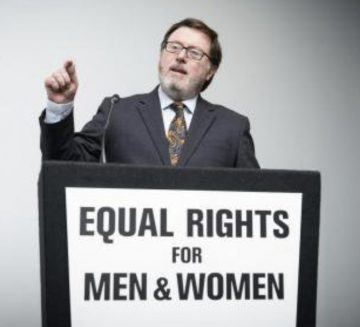 The case for men’s rights follows straightforwardly from the feminist critique of the structural injustice of gender rules and roles. Yes, these rules are wrong because they oppress women. But they are also wrong because they oppress men, whether by causing physical, emotional and moral suffering or callously neglecting them. Unfortunately the feminist movement has tended to neglect this, assuming that if women are the losers from a patriarchal social order, then men must be the winners.
The case for men’s rights follows straightforwardly from the feminist critique of the structural injustice of gender rules and roles. Yes, these rules are wrong because they oppress women. But they are also wrong because they oppress men, whether by causing physical, emotional and moral suffering or callously neglecting them. Unfortunately the feminist movement has tended to neglect this, assuming that if women are the losers from a patriarchal social order, then men must be the winners.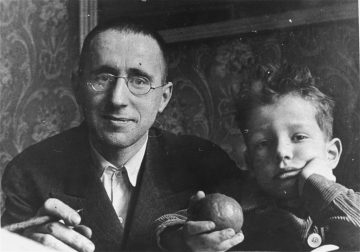


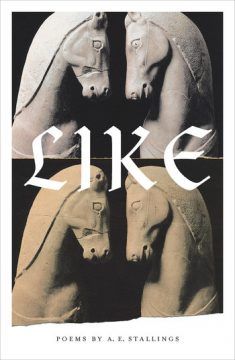
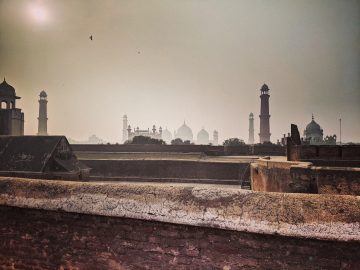 Some months ago, on a sunny Sunday afternoon, I went to my bank’s ATM in the main market close to where I live in the Defence Housing Authority, Lahore’s latest fancy suburb, which is organized and managed by the military.
Some months ago, on a sunny Sunday afternoon, I went to my bank’s ATM in the main market close to where I live in the Defence Housing Authority, Lahore’s latest fancy suburb, which is organized and managed by the military.